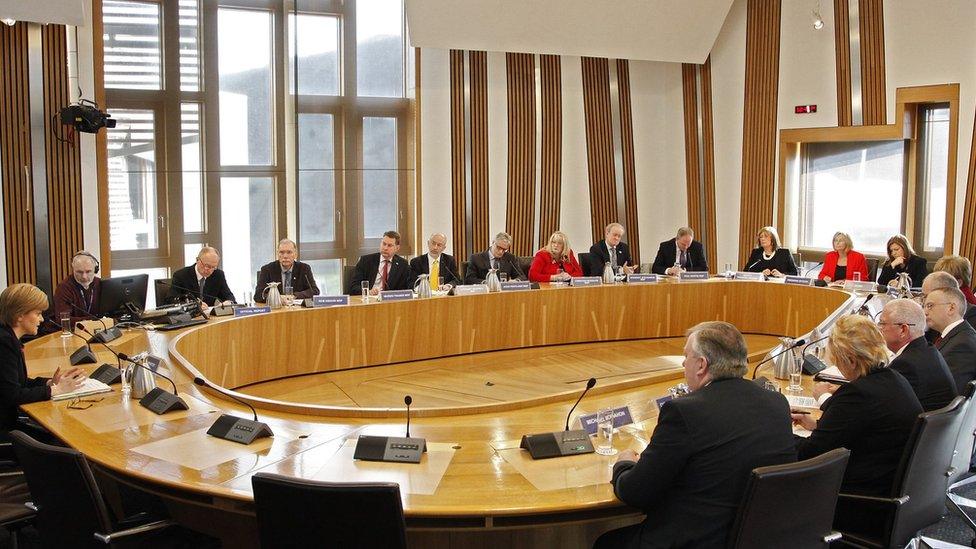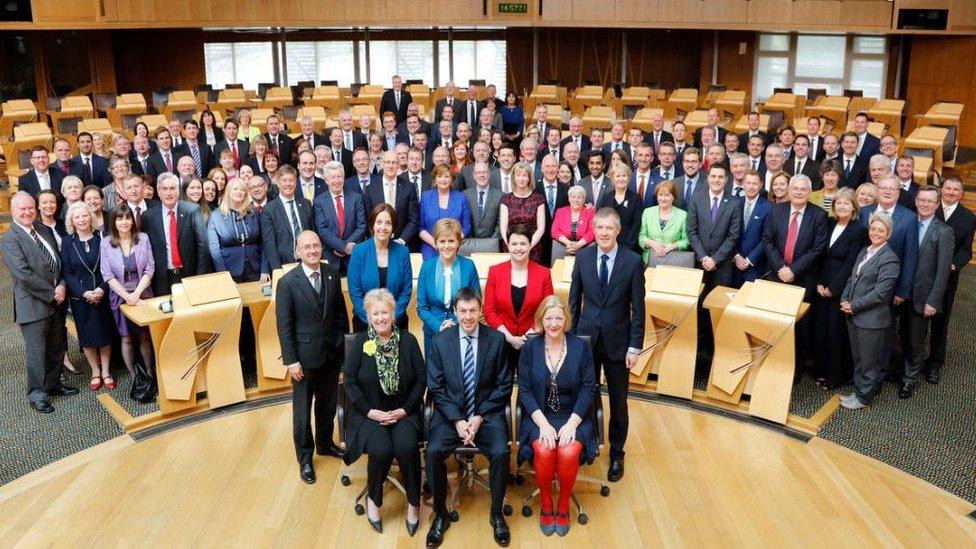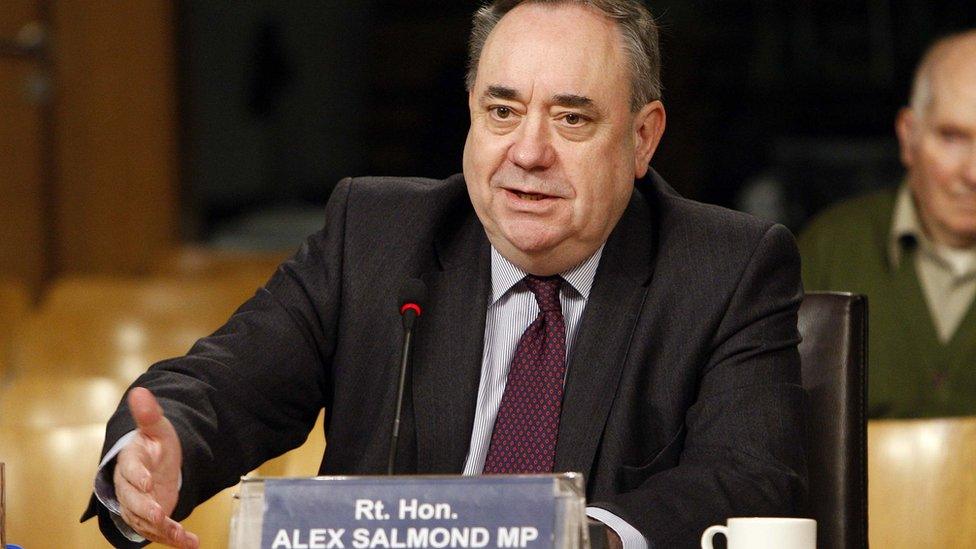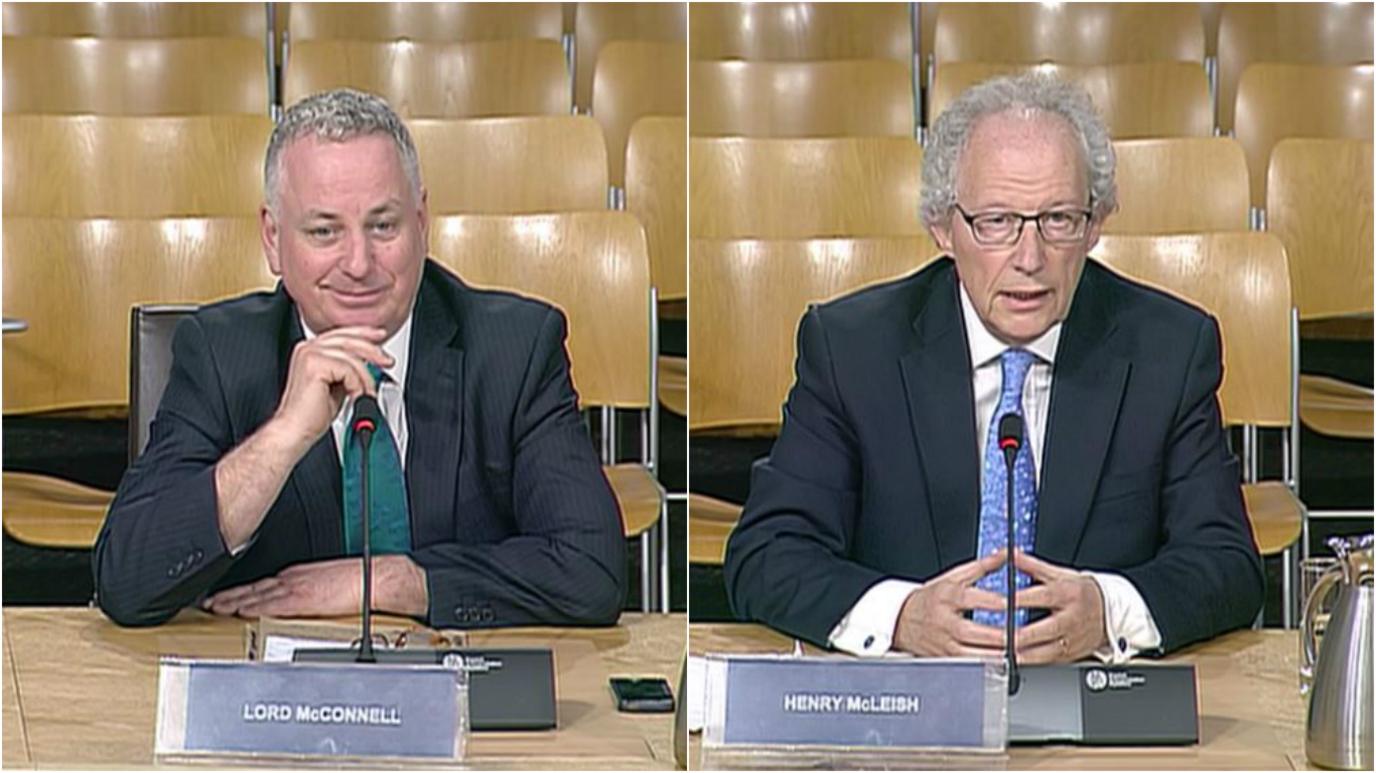Independent commission sets out 75 Holyrood reforms
- Published

The commission was set up to give Holyrood "an MOT" but has heard calls for "radical" reforms
An independent review of the Scottish Parliament has set out more than 70 recommendations for improvements.
The Commission for Parliamentary Reform was set up in October 2016, tasked with giving Holyrood "an MOT".
Suggestions include having committees with elected conveners which can sit at the same time as the main chamber and expanding the legislative process.
Chairman John McCormick said the changes suggested would equip Holyrood to meet future challenges "head on".
The group has heard a wide range of views from respondents including MSPs and several former first ministers.
Some have called for "radical" reforms, including changes to the electoral system, the number of MSPs, sitting hours, ministerial question times and how committees are run.
Mr McCormick said the recommendations set out in his report, external were "substantial, and taken together represent very real change in how the parliament operates".
However, he said that contrary to some suggestions, "it would not be justified to recommend a second chamber or an increase in the number of MSPs unless it can be demonstrated that the parliament is currently working at peak efficiency".
The reforms set out aim to "maximise the capacity of the existing parliament...before more radical proposals are considered".
They include:
Smaller, stronger committees with conveners elected by parliament, which are allowed to meet while the main debating chamber is sitting
Scrapping the requirement for questions to the first minister to be published in advance
Expanding the legislative process to five stages, rather than three, so there is more time for pre and post-legislative scrutiny
A stronger role for the presiding officer in ruling on conduct in the chamber
Changing the way chamber business is decided on
The establishment of a national legislative standards body to improve the quality of legislation brought to parliament
A committee engagement unit to support committees to be more innovative and take more risks
Benchmarks for MSP recruitment from under-represented groups

The review recommends smaller, stronger committees
Analysis by BBC Scotland political reporter Philip Sim
Tucked away in paragraph 122 of the report is a revealing line about the true purpose of the exercise: "reducing waffle".
The commission was set up with a relatively modest goal, of giving Holyrood "an MOT". They promptly heard calls for radical changes to more or less everything.
Mr McCormick nodded to calls for more MSPs, a second chamber and changes to the electoral system in his report - they have not been ruled out. But the package of reforms recommended sticks more to the modest remit, erring on the side of the achievable.
It's a retune, rather than a rebuild. There are tweaks that bid to achieve better gender balance, stronger and more representative committees, better legislative scrutiny. Things to make dedicated Holyrood-watchers nod their heads and say "why didn't they do that ages ago?"
In terms of things that ordinary people might notice at home, the tedious "what are the first minister's engagements for the rest of the day" questions at FMQs are toast.
The presiding officer is also to crack down on what Neil Findlay called "Gardener's Question Time", where government backbenchers gently pitch softballs to ministers while struggling to read their party whip's handwriting.
The biggest effect for "people at home" of course will be the outcome in the round: if parliament runs a little more smoothly and churns out slightly better legislation, it will be to the benefit of everyone.

Mr McCormick said: "The Scottish people have been at the heart of the parliament but more could be done to involve them in its work. That's why we have made a series of recommendations to allow people throughout the country to engage with the Parliament how they want and where they want."
"When this commission was launched the presiding officer referred to the parliament's founding principles and the need for the parliament to get back to its roots. Our recommendations keep faith with those founding principles while delivering significant reform."
Presiding Officer Ken Macintosh, who set up the commission to give Holyrood "an MOT", said its report was "a comprehensive and impressive piece of work" which "marks a coming of age for the Scottish Parliament".
He said he would throw his full weight behind implementing the recommendations put forward in the report.
He said: "It recognises the central role Holyrood has played in Scottish political life over the last 18 years and shows how we can build on that and continue to mature as an institution as we take on additional powers and grapple with major issues ahead such as Brexit.
"There are over 70 recommendations in the report which touch on every aspect of how we conduct our business and at their heart are the principles of openness and accountability to the people of Scotland."
- Published24 April 2017

- Published24 March 2017

- Published16 January 2017
